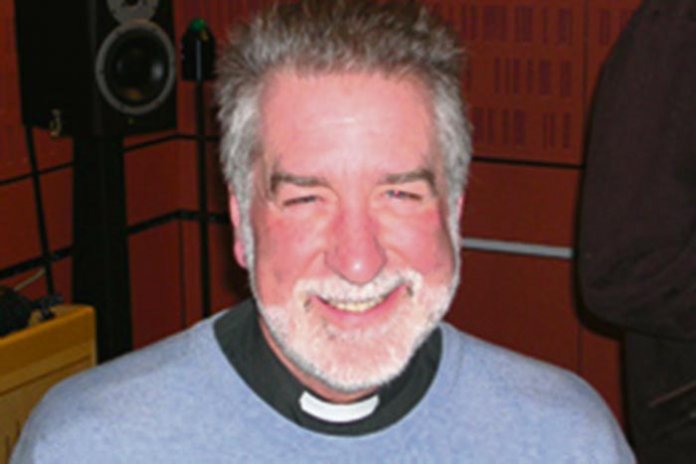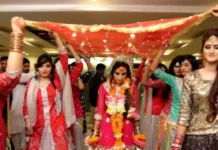Nineteen sixties
The mood, the environment, the culture of the Church of England in the decade from my teenage years (the nineteen sixties, by when I’d known I was gay for five years) to the nineteen nineties, was a good place in which to be gay. The whole of my being, my intuitive, experiential, feeling, creative, idealistic, introverted self, discovered that I was in a gay friendly environment despite that me also knowing that homosexuality was taboo and disapproved of by God. But I was arrogant enough to have decided that if this was really what God thought, then God was wrong and I was right. Thank God for arrogance.
Nineteen seventies
Whether the congregation at St Barnabas Southfields knew I was gay or not, I was included unconditionally in the life of the congregation. As I began to become involved with the Southwark Diocese Youth and Children’s Council the experience was the same. In the nineteen seventies It was the same in Basingstoke in the Diocese of Winchester. The curate was gay. The new curate was gay. The clergy were all gay friendly. It was the same when I responded to a vocation to the priesthood and met the gay Director of Ordinands in Southwark and when, later in the decade, I was at Westcott House. The Vice Principal had come out in a Compline address the term before I arrived.
Nineteen eighties
It was no surprise when I returned to Southwark as a curate in 1978 to discover that my incumbent was gay and the youth worker lesbian. Half the clergy in the deanery were gay. The bishop and the suffragan bishop were gay. The junior of the clergy met once a month for supper. Half of them were gay. Post ordination training was often conducted by gay clergy. And I was introduced to the Lesbian and Gay Clergy Consultation, a national group of about 500 priests, all gay, lesbian or, bisexual, one of the most mature, affirming, spiritual, inspiring groups I’ve ever been part of in the CofE.
There was a blip at the end of the eighties – the Higton motion and debate at General Synod. It was one of the first occasions at which anti-gay voices were heard, but the bishops tabled an amendment which effectively neutered the motion – they were clearly in a protective mode.
Nineteen nineties
Now an incumbent in Wandsworth with a gay-affirming bishop and congregation, my intuitive spiritual experience was the same as the nineteen sixties. Despite there being groups in the Church that were homophobic and prejudiced, the environment of the CofE still felt very affirming and safe, Bishop Jack Spong spoke to the Diocesan Residential Conference at Caister in 1991 and the Southwark Diocese Lesbian and Gay Support Network was formed, a group that quickly evolved into a strong, supportive body providing mutual encouragement and vision. From SLAGS Changing Attitude was born.
My sense of the CofE as being an environment that was safe, welcoming and affirming for me began to change in 1997 following the Kuala Lumpur Conference when judgement of LGBTQIA+ people was put firmly on the agenda and the 1998 Lambeth Conference. Contact was first made with the leaders of Integrity USA. I began to learn how a campaigning movement for change and full inclusion worked in the ECUSA – and how it was going to become necessary in the Church of England. Jack Spong, Richard Kirker, and other vocal advocates came to the fore.
The Noughties
Gene Robinson, Jeffrey John, the Windsor Report, Primates’ meetings and Anglican Consultative Council meetings became a new ingredient of my otherwise calm life in what was fast becoming a much less benign environment for LGBTQIA+ people. Hostility, insecurity, prejudice, homophobia (and increasingly transphobia) became a constant presence. It was often ugly.
The Teens and into the Twenties
We’ve had the Report and the Listening Process, hiatus after hiatus, failed attempts to achieve a secure environment for LGTQIA+ people while in the secular world, legal protections, equality, civil partnerships and equal marriage were introduced by governments with a vision.
Spiritual depth eroded and destroyed
I now live in a hostile environment of endless battles, reports, reboots and ‘process’. The Living in Love and Faith process undergoes repeated attempts to resolve the impossible conflicts between conservative evangelicals and progressives. As I meditated this morning, Good Friday, feeling acutely on edge and insecure, I realised clearly for the first time that my erstwhile quiet confidence of being me, a gay man in the Church of England, and God with me, despite ‘his’ historic characterisation as homophobic, Jesus as an unconditionally loving inner presence and companion, all this has been steadily undermined and eroded over the past two and a half decades. I no longer feel a trust in my God-give, God-created identity in the same deeply-trusting, integrated way that I did in earlier decades. I realised that for months I’ve been longing for and trying to recover my confidence in the unconditional presence and love I’ve known. It has been steadily eroded by the now constant, repetitive attacks on my integrity and identity as a person, let alone as a Christian. It is soul-destroying, literally, undermining the essence of my being in which I once had great confidence. It may be the product of ageing, but I don’t think so. Twenty-five years of hostile attacks and relentless abuse have taken their toll.
And yet I haven’t given up. My conviction has not been lost. Jesus comes that we may have life in all its fullness. This is resurrection life, which once I live with deep confidence. God is unconditional, infinite, intimate love, and I’ve know this from experience of a Church woven through with people living this love in quiet, transforming confidence. Radical new Christian inclusion was a culture I once experienced, before conservatives, internationally, decided to campaign against gays in the Anglican Communion. One of the reasons for the Church of England’s deathly trajectory today is that the gender and sexuality wars, for all their practical achievements, are eroding the natural spiritual energies I experienced in earlier decades.
This has been my Good Friday revelation. I yearn for what has been lost. If spiritual energy exists anywhere now, it’s on the edges, in the residential religious communities where the environment is more safe and protective and in random groups and small new communities. But I don’t find it in congregations and local communities. My gay friends and colleagues who survive and sometimes flourish do so despite the contemporary culture. Others have been driven out.










